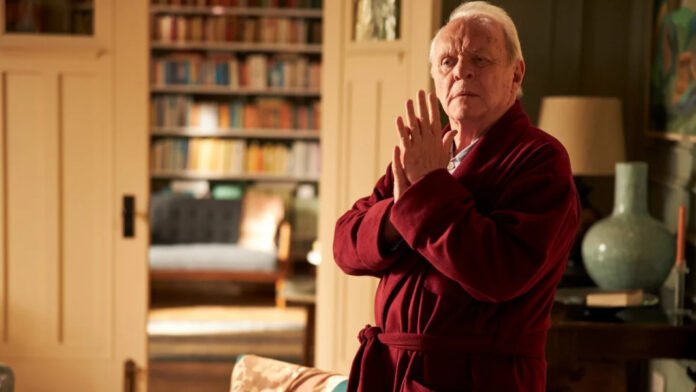In Florian Zeller’s 2020 masterpiece The Father, Anthony Hopkins delivers a performance of a lifetime, not merely as an actor but as a hauntingly authentic portrait of a man slipping into the abyss of dementia. For those who have witnessed this cruel illness firsthand, the film is not just a story; it is a mirror reflecting the fragmented and disorienting reality faced by both the patient and their loved ones.
The film resonated with me on a deeply personal level, echoing the experiences I’ve had with my own father. It’s a reality where loved ones become strangers and the home becomes a prison. My father, like Anthony Hopkins’ character in the film, is convinced he has been forcefully confined to a mental institution, a heartbreaking delusion that is impossible to correct without triggering his aggression. The film captures this volatile emotional landscape with painful accuracy, portraying the frustration and helplessness that caregivers experience when faced with such unwavering convictions.
One of the most poignant scenes in the film involves the character’s obsession with a stolen watch. This detail is a powerful metaphor for the loss of control and suspicion that often accompanies the disease. It struck a particular chord with me, as my father, a man who was once very fond of his shoes, now constantly accuses the maid of stealing them. The film, in this small yet significant detail, perfectly encapsulates how the mind clings to misplaced memories and paranoia, transforming a once-cherished passion into a source of suspicion and anger.
The film’s most devastating element, however, is its depiction of memory. My father, much like Hopkins’ character, frequently calls out for his own mother, who passed away over 25 years ago. The film’s ability to portray this longing for a past that is no longer accessible is deeply moving. It is a stark reminder that while the patient may not recognize the faces of those who love them today, they often retain an emotional connection to figures from a long-lost past. The final scenes, with Hopkins’ raw and vulnerable cries, are not just a performance but a testament to the a profound sense of loss that defines this disease.
In conclusion, The Father is more than just a cinematic achievement; it is a vital and empathetic piece of art that illuminates the terrifying reality of dementia. Hopkins’ acting, as always, is a masterclass in subtlety and power, and his portrayal of a man unraveling is nothing short of breathtaking. The film stands as a testament to the importance of stories that are not afraid to confront difficult truths, and it serves as a powerful validation of the complex and heartbreaking emotions experienced by millions of families worldwide. For its deeply personal resonance and Hopkins’ acting of a lifetime, this film deserves a 5 out of 5 stars.

























